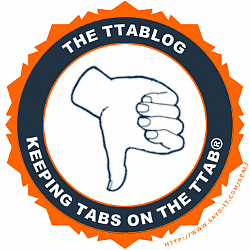The Ten Worst TTAB Decisions of 2007? [Part 1 of 2]
Every year, as a prologue to the "10 Worst" list, I remind readers that no one is perfect, not even yours truly. After all, Babe Ruth failed to hit safely 65% of the time and Michael Jordan missed about half his shots. So is it any wonder that, out of the 500 or so final decisions issued by the TTAB in 2007, there were a few that were "off the mark," so to speak? I list below (the first five of) what I consider to be the Board's ten worst decisions of last year. [Part 2 of this two-part posting will appear tomorrow]. Obviously, these are subjective judgments, and some of you may disagree with one or more of my selections. I can live with that.

In re PNC Bank, N.A., Serial No. 78492942 (January 16, 2007) [not precedential]. In this dubious decision, the Board found the mark GREEN BRANCH not to be merely descriptive of banking, financial, investment, and insurance services, and it therefore reversed the PTO's Section 2(e)(1) refusal to register. The PTO reasonably contended that the mark describes financial and banking service offered in branches that have environmentally-friendly features, pointing to Applicant's own press release "referencing 'green branch' in connection with environmentally friendly buildings," to dictionary definitions of "green," and to a newspaper article using the terms "green branch," "green offices," and "green bank branches" in referring to Applicant. PNC argued that the term GREEN BRANCH has a wide range of "potential meanings' and that its identified services "do not imply or suggest environmental protection." The Board sided with PNC, oddly observing that "the rendering of such services in environmentally friendly or ecologically efficient facilities does not affect the basic principles of the financial and banking business." Despite the PTO’s evidence, the Board ruled that the connection between the mark GREEN BRANCH and banking services "is too indirect or remote to find the mark merely descriptive." (TTABlogged here).

B.V.D. Licensing Corp. v. Right Ascension, Inc., Opposition No. 91169355 (December 14, 2007) [not precedential]. When one party does all the work and the other neither submits evidence nor files a brief, the resulting decision may be as unsatisfactory as this one. The Board sustained a Section 2(d) opposition to registration of the mark DVD EMPIRE for shirts, finding it likely to cause confusion with the marks B.V.D. and BVD, registered for underwear, t-shirts, shirts, and shorts. The Board found the BVD marks to be famous for, at a minimum, men's underwear. Moreover, the goods are in part identical and would be purchased without great care, and the channels of trade and class of purchasers the same. But what about the differences in the marks? No need to get your shorts in a twist! Because the goods are identical, a lesser degree of similarity in the marks is required to support a finding of likely confusion. Taking into account the fame of Opposer's mark, the Board found that "the points of similarity outweigh the dissimilarities." "We first observe that the term DVD is the dominant element in applicant's mark. It is the first word in the mark and, as opposer notes, EMPIRE has a certain laudatory quality to it inasmuch as it connotes a degree of supremacy, rendering it less influential as the source identifier in applicant's mark."[What about the plain meaning of DVD as digital video disk? - ed.] Moreover, "B" and "D" are visually similar and are somewhat phonetically similar. And Applicant's mark could be displayed in the manner in which Opposer's mark is displayed. [That's if you hide the word EMPIRE - ed.]. Both BVD and DVD are arbitrary with regard to shirts, and a one-letter difference is not sufficient to distinguish between two other otherwise identical letter combinations. Therefore the Board found confusion likely and it sustained the opposition. (TTABlogged here).

Scheder v. Touristik Arbeitsgemeinschaft Romantische Strabe GbR, Cancellation No. 92045257 (June 19, 2007) [not precedential]. In a puzzling decision granting Respondent Touristik's motion for summary judgment, the Board dismissed a petition for cancellation of a registration for the mark ROMANTIC ROAD for tourism promotion services in class 35, finding the mark not to be primarily geographically descriptive under Section 2(e)(2). Petitioner claimed that the phrase "Romantic Road" describes a particular region in Southern Germany, but the Board found that Petitioner failed to overcome Registrant's prima facie case that ROMANTIC ROAD functions primarily as a mark. Registrant's evidence established that the term ROMANTIC ROAD was coined in 1950 by a group of tourist boards in Germany. Petitioner Scheder offered maps, road signs, websites, Internet search results and documents, all "purporting to show that ROMANTIC ROAD identifies a physical location." The Board oddly found that ROMANTIC ROAD "has become a known travel destination. Thus, Registrant has set out a prima facie case that ROMANTIC ROAD functions primarily as a mark." Somehow unable to find a genuine issue of material fact in dispute, the Board granted Registrant's motion. (TTABlogged here).

Riviana Foods Inc. v. Romero-Nunez, Opposition No. 91167098 (July 24, 2007) [not precedential]. Relying on questionable evidence and an equally questionable interpretation of the case law, the Board sustained a Section 2(d) opposition to registration of the mark EL MAGO for restaurant services, finding the mark likely to be confused with the identical mark registered for rice and rice mixes. "[O]pposer's goods and applicant's services must be presumed to include rice and rice mixes on the one hand and restaurants on the other with the same theme or flavoring." [Huh? - ed.] The Board unconvincingly distinguished Jacobs v. Int’l Multifoods Corp. and its progeny, which hold that "to establish likelihood of confusion a party must show something more than that similar or even identical marks are used for food products and restaurant services." It relied on several articles from printed publications "all discussing the growing trend among restaurants to license the use of their marks on food items" [hearsay? - ed.] and pointed to third-party registrations "in which the same mark is used to identify restaurant services and a variety of food products." Finally, the Board concluded that the involved goods must be presumed "to be marketed to the same class of consumers, i.e., the general public, through the same media outlets such as television, radio, internet, and printed advertisements." (TTABlogged here).

In re Eolith Co., Serial No. 78139104 (February 9, 2007) [not precedential]. Applicant Eolith’s appellate gamble paid off when the Board reversed the PTO’s refusal to register EL DORADO for "computer electronic games; automatic slot machines" (class 9). The PTO maintained that Applicant's specimen did not show use of the mark in connection with the goods identified, but instead showed an arcade game, properly in Class 28. There was no debate that Applicant's product was not an "electronic computer game;" the Board noted that "its operation by gamers appears to be primarily mechanical." [The user, more than likely a child, controls a crane built into the machine to rake coin-like medals off a pile (see below).] Dictionary definitions of "slot machine" were in disagreement. The PTO’s definitions restricted "slot machines" to coin operated "vending machines." Applicant's dictionary and two judicially-noticed references defined "slot machines" as broadly encompassing machines operated by dropping a coin into a slot. Casting aside common sense, the Board determined that the majority of the definitions "do not restrict 'slot machines' to 'vending machines,’” and that the specimen “is sufficient evidence of use of the mark for the identified goods, i.e., 'automatic slot machines.'" (TTABlogged here).

Text Copyright John L. Welch 2007-08.




0 Comments:
Post a Comment
<< Home